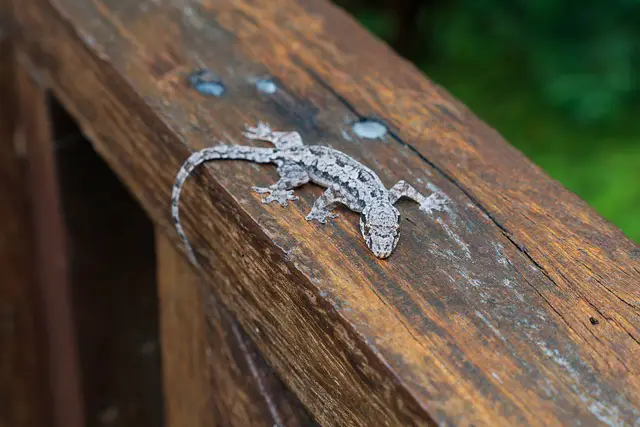You’re an experienced lizard owner who knows house lizards are generally friendly and harmless. But recently, you’ve heard that some species of house lizards can be venomous or even poisonous. Is there any truth to these rumors? Let’s explore the facts and dispel the myths about these seemingly harmless reptiles.
Are House Lizards Poisonous?
Although it is widely believed that house lizards are poisonous, this is untrue.
Lizards are harmless to humans and unlikely to spread any illness.
While some lizards have venom, their small size means they lack the power to deliver a dangerous amount of toxin.
Furthermore, there have been no incidents of humans being harmed by house lizards.
For this reason, we can confidently state that house lizards pose no threat to human health or safety.
Therefore, if you find these common pests lurking around your home, there is no need for alarm; remove them from your environment without hassle or harm.
Do House Lizards Have Venom?
This question often arises when people discover one of these common reptiles inside their homes.
The answer, however, is that they do not.
These lizards are generally harmless, though some species may bite if provoked.
Many don’t know that the glands that produce venom or toxins in other types of lizards are atrophied biological remnants for this particular species.
Instead, saliva glands help it to consume and digest its prey. Regarding potential harm to humans, there is no reason to fear as the lizard won’t have the chance to inject any venom even if it wants to.
Species of House Lizards that are Poisonous?
While most house lizards are not poisonous, some species, such as Gila Monsters and Mexican Beaded Lizards, produce poison in their saliva glands when threatened or disturbed.
These toxins can cause severe illnesses if ingested or absorbed through skin contact.
It’s important to note that these species are not commonly kept as pets due to their size and aggressiveness; however, it’s still important to be aware of them before deciding on which type of pet lizard is best for your home.
What Should I Do If My Lizard Bites Me?
Suppose your pet lizard does bite you or someone else in your household. In that case, taking proper precautions to ensure your safety and minimize any further risk of infection or illness from their toxins is essential.
First, rinse the wound with warm water and soap for at least five minutes while gently rubbing the area with a clean cloth or cotton swab.
Afterward, apply an antibiotic ointment onto the wound and cover it with a bandage until it heals appropriately (typically within one week).
If you notice any signs of swelling or redness around the site of the bite, then seek medical attention immediately, as this could indicate an allergic reaction to their venom/toxin/saliva glands.
Conclusion
As we can see from this exploration into house lizards, not all species possess venom or poison glands – though some may contain mild toxins capable of causing minor illnesses if ingested or absorbed through skin contact without proper care taken after a bite occurs (i.e., washing the wound with warm water/soap).
Therefore, it is essential for prospective pet owners who wish to keep lizards as pets in their homes to research each type thoroughly before deciding to ensure both their safety and that of their new companion.




